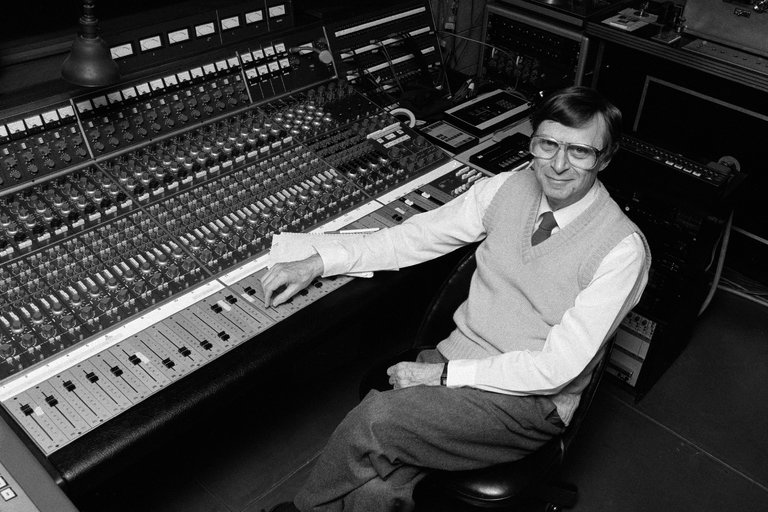
Only a non-jazz fan would ask “Rudy who?”. Rudy was a renowned recording engineer and the principle sonic architect of the “Blue Note Sound”. A specific sound that is associated with the classic recordings of the golden jazz era of the last 50 years. He worked with many recording companies but is best known for his work with Alfred Lyon’s Blue Note Recording company. He recorded all the jazz greats, including Miles Davis, Thelonious Monk, John Coltrane and just about every other major jazz artist of the past 50 years.
He wasn’t always a sound engineer. He trained as an optometrist and that was his “day job”. He went off to work in the morning to his optometry practice to earn his “daily bread” and after hours he spent his time recording jazz. At first in his parent’s living room, then in the iconic studio he designed and built at Engelwood Cliffs in Hackensack, New Jersey. He eventually ditched his day job and became a full time recording engineer.
Here is a Wikipedia quote: “When I first started, I was interested in improving the quality of the playback equipment I had,” Van Gelder commented in 2005; “I never was really happy with what I heard. I always assumed the records made by the big companies sounded better than what I could reproduce. So that’s how I got interested in the process. I acquired everything I could to play back audio: speakers, turntables, amplifiers”. One of Van Gelder’s friends, the baritone saxophonist Gil Melle introduced him to Alfred Lyon, a producer for Blue Note Records, in 1953. Within a few years Van Gelder was in demand by many other independent labels based around New York, such as Prestige Records, Impulse and Savoy. Bob Weinstock, owner of Prestige, recalled in 1999, “Rudy was very much an asset. His rates were fair and he didn’t waste time. When you arrived at his studio he was prepared. His equipment was always ahead of its time and he was a genius when it came to recording”. According to a JazzTimes article in August 2016, “jazz lore has formed the brands into a yin and yang of sorts: The Blue Note albums involved more original music, with rehearsal and the stringent, consistent oversight of Alfred Lion; Weinstock was more nonchalant, organizing what were essentially blowing sessions for some of the best musicians in jazz history”. Van Gelder said in 2012, “Alfred was rigid about how he wanted Blue Note records to sound. But Bob Weinstock of Prestige was more easygoing, so I’d experiment on his dates and use what I learned on the Blue Note sessions”. He also worked for Savoy Records in this period, among others. “To accommodate everyone, I assigned different days of the week to different labels”. Rudy was also a pioneer in the development of live “on site” jazz recordings. In the 1950s Van Gelder also performed engineering and mastering for the classical label Vox Records. Thelonious Monk composed and recorded a tribute to Van Gelder entitled “Hackensack”.
Here is quote that I am sure will raise the ire of fans of vinyl recordings. From 1999 on, he re-mastered the analog Blue Note recordings, that he had made several decades earlier, into 24-bit digital recordings for the Blue Note’s RVG Edition series and also a similar series of re-masters for the current owners, Concord Records, of some of the Prestige albums he had previously recorded. He was positive about the switch from analog to digital technology. He told Audio magazine in 1995: “The biggest distorter is the LP itself. I’ve made thousands of LP masters. I used to make 17 a day, with two lathes going simultaneously, and I’m glad to see the LP go. As far as I’m concerned, good riddance. It was a constant battle to try to make that music sound the way it should. It was never any good. And if people don’t like what they hear in digital, they should blame the engineer who did it. Blame the mastering house. Blame the mixing engineer. That’s why some digital recordings sound terrible, and I’m not denying that they do, but don’t blame the medium.”
Van Gelder resided in Englewood Cliffs, New Jersey where he died at his home on August 25, 2016.
@@@@@@@@@@@@@@
@@@@@@@@@@@@@@
